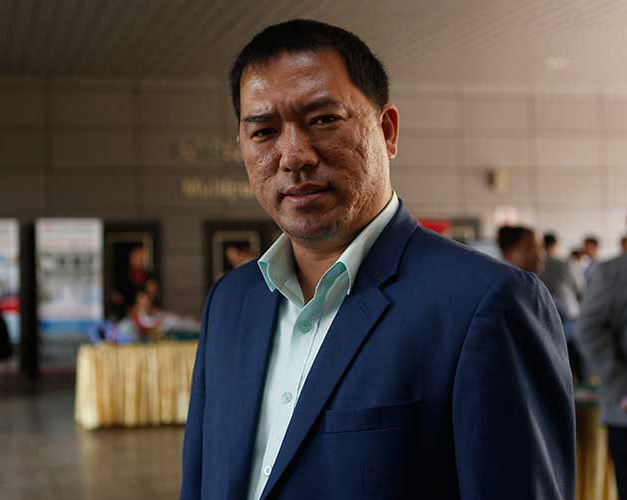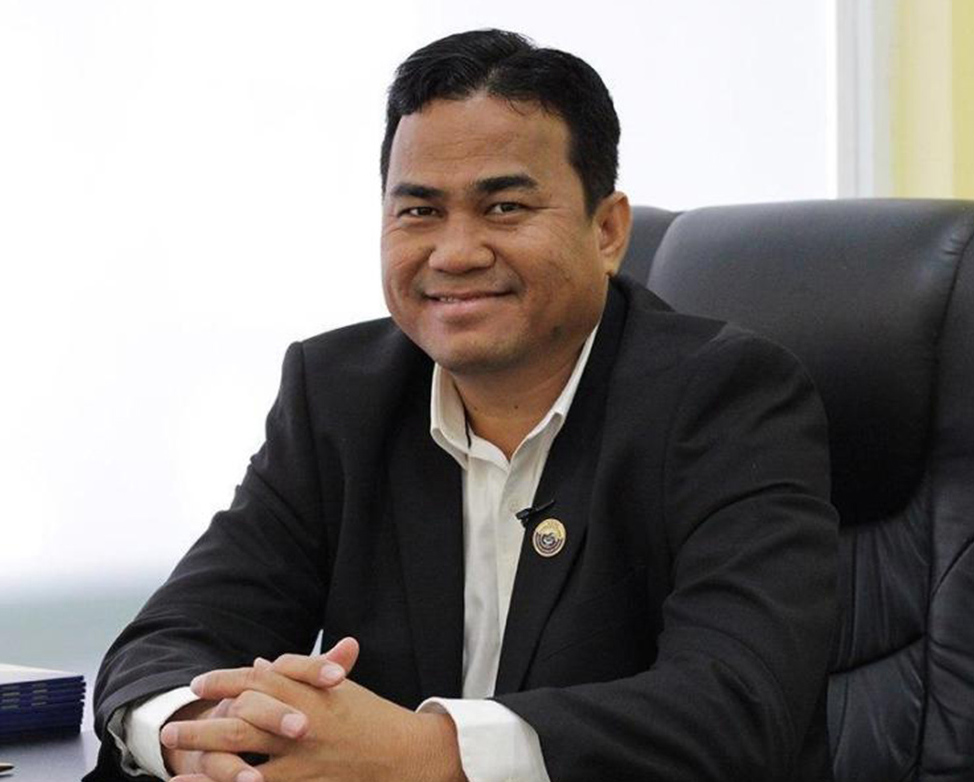ADB ប្រកាសពង្រីកទំហំហិរញ្ញប្បទានរបស់ខ្លួនដល់ $៣៦ពាន់លាន ដើម្បីដោះស្រាយបញ្ហាប្រឈមនៅអាស៊ីប៉ាស៊ីហ្វិក
នៅក្នុងការផ្លាស់ប្តូរដ៏សំខាន់មួយក្នុងការជំរុញការអភិវឌ្ឍន៍នៅទូទាំងតំបន់អាស៊ីប៉ាស៊ីហ្វិក ធនាគារអភិវឌ្ឍន៍អាស៊ី (ADB) បានបង្ហាញផែនការបង្កើនសមត្ថភាពហិរញ្ញប្បទានប្រចាំឆ្នាំរបស់ខ្លួនពី ២៤ពាន់លានដុល្លារក្នុងឆ្នាំ២០២៤ ដល់ ៣៦ពាន់លានដុល្លារនៅឆ្នាំ២០៣៤ ។ ការពង្រីក ៥០% នេះមានគោលបំណងលើកកម្ពស់សមត្ថភាពរបស់ ADB ក្នុងការដោះស្រាយបញ្ហាប្រឈមនានាក្នុងតំបន់ និងជំរុញកំណើនប្រកបដោយចីរភាព។ នៅក្នុងសេចក្តីប្រកាសព័ត៌មាននៅថ្ងៃទី១៨ ខែកុម្ភៈ ឆ្នាំ២០២៥ ប្រធាន ADB លោក Masatsugu Asakawa មានប្រសាសន៍ថា ផែនការប្រើប្រាស់មូលធន (CUP) នេះនឹងពង្រឹងឥទ្ធិពលការងាររបស់ ADB ក្នុងការលើកកម្ពស់ជីវភាពរស់នៅរបស់ប្រជាពលរដ្ឋ និងការពារភពផែនដី។ ផែនការនេះអនុញ្ញាតឱ្យការវិនិយោគជាយុទ្ធសាស្រ្តដើម្បីដោះស្រាយបញ្ហាប្រឈមដ៏ស្មុគស្មាញ និងលើកកម្ពស់គុណភាពប្រតិបត្តិការ និងប្រសិទ្ធភាពនៅក្នុងតំបន់។ ADB មានគោលបំណងពង្រឹងការផ្តល់ប្រាក់កម្ចីសម្បទាននេះ ដើម្បីបង្កើនមូលនិធិអភិវឌ្ឍន៍អាស៊ី និងជំរុញយ៉ាងខ្លាំងនូវការសន្យាផ្តល់ប្រាក់កម្ចីរបស់ខ្លួនក្នុងរយៈពេលពីរទៅបីឆ្នាំខាងមុខ។ ប្រតិបត្តិការមិនមែនអធិបតេយ្យភាពនេះ ត្រូវបានគេរំពឹងថានឹងកើនឡើងពី ២០% ទៅ ២៧% ក្នុងទសវត្សរ៍ក្រោយ ខណៈពេលដែលប្រតិបត្តិការអធិបតេយ្យភាពនេះក៏នឹងពង្រីកល្បឿនអភិវឌ្ឍន៍ជាមធ្យមបន្ថែមទៀតផងដែរ។ ដើម្បីសម្រេចបាននូវគោលដៅឆ្នាំ២០៣០ របស់ខ្លួន ADB នឹងក៏បានបង្កើនចំណែកនៃហិរញ្ញប្បទានអាកាសធាតុដល់ ៥០% នៃការប្តេជ្ញាចិត្តសរុប ដែលនឹងឈានដល់ ១៣ពាន់លានដុល្លារក្នុងការផ្តល់ហិរញ្ញប្បទានពីវិស័យឯកជនពីការផ្តល់មូលនិធិរបស់ ADB និងការប្រមូលផ្តុំដោយផ្ទាល់នៅឆ្នាំ២០៣០។ នៅពេលដែល ADB […]
ការដកខ្លួនរបស់ទីភ្នាក់ងារ USAID ត្រួសត្រាយផ្លូវសម្រាប់ការពង្រីកឥទ្ធិពលរបស់ចិននៅកម្ពុជា និងអាស៊ាន
ការបង្កកជំនួយ USAID ភ្លាមៗក្រោមរដ្ឋបាលអាមេរិកថ្មីរបស់លោកប្រធានាធិបតី ដូណាល់ ត្រាំ បានបញ្ឈប់គម្រោងហេដ្ឋារចនាសម្ព័ន្ធ និងការអភិវឌ្ឍន៍សំខាន់ៗនៅទូទាំងអាស៊ីអាគ្នេយ៍ ហើយ នយោបាយដកថយនេះ បានបន្សល់ទុកចន្លោះប្រហោងឥទ្ធិពលផ្នែកភូមិសាស្ត្រនយោបាយ ដែលនឹង ក្លាយឪកាសដ៏ល្អសម្រាប់ប្រទេសចិនចូលមកបំពេញជំនួស។ ជំនួយបរទេសជិត ៦៨ ពាន់លានដុល្លារ ដែលសហរដ្ឋអាមេរិក ធ្លាប់បានជួយបន្តពីឆ្នាំ ២០២៣ ដល់ប្រទេសនៃអនុតំបន់ទន្លេមេគង្គក្នុងមាន ប្រទេសកម្ពុជាផង ឥឡូវនេះត្រូវបានកាត់ផ្តាច់ ហើយការសម្រេចចិត្តនេះ បានប៉ះពាល់ ដល់មនុស្សរាប់ លាននាក់ដែលកំពុងពឹងផ្អែកលើកម្មវិធីទាំងនេះ យោងតាមសារៈព័ត៌មាន scmp.com រាយការណ៍កាលពីថ្ងៃទី ២៨ ខែមករា ឆ្នាំ២០២៥។ ការសម្រេចចិត្តនេះ ផ្តើមចេញពីគោលនយោបាយ “អាមេរិកមុនគេ America First” របស់លោក ដូណាល់ ត្រាំ និងគម្រោងមូលនិធិមត៌ក ២០២៥ ( Heritage Foundation’s 2025) បានធ្វើឱ្យមាន ការភ្ញាក់ផ្អើលយ៉ាងខ្លាំងក្នុងចំណោមមហាជន និងអ្នកជំនាញក្នុងតំបន់ ដោយក្រុមអ្នកស្រាវជ្រាវ បានព្រមានអំពីផលវិបាកសេដ្ឋកិច្ច និងនយោបាយរយៈពេលវែង។ យោងតាមលោក Grace Stanhope សហការីស្រាវជ្រាវរបស់វិទ្យាស្ថាន […]
សេដ្ឋកិច្ចចិនជួបវិបត្តិថ្មី ជះឥទ្ធិពលដល់ទីផ្សារអចលនទ្រព្យនិងគម្រោងអភិវឌ្ឍន៍សំខាន់ៗនៅអាស៊ាន
ទំហំពាណិជ្ជកម្មតម្លៃប្រមាណ ៧២២ពាន់លានដុល្លាររ វាងចិន និងអាស៊ាន កំពុងប្រឈមមុខនឹងសម្ពាធដែលមិនធ្លាប់មានពីមុនមក ជាពិសេស គឺបញ្ហាអតិផរណា និងការកើនឡើងនៃចំនួនយុវជនអត់ការងារធ្វើ។ ជាមួយគ្នានេះ វិស័យអចលនទ្រព្យរបស់ប្រទេសចិនដែលរួមចំណែកច្រើនជាង ២៥% នៃផលិតផលក្នុងស្រុកសរុបរបស់ខ្លួន និងស្មើនឹងប្រហែល ៧០% នៃទ្រព្យសម្បត្តិឯកជនរបស់ប្រជាពលរដ្ឋចិន បង្ហាញសញ្ញារងគ្រោះធ្ងន់ធ្ងរ ចំពេលមានការធ្លាក់ចុះទំនុកចិត្តពីអ្នកប្រើប្រាស់ ដែលបានឈានដល់កម្រិតទាបបំផុតរហូតដល់ ៨៦% ក្នុង ខែកក្កដា ឆ្នាំ ២០២៤ នេះបើយោងតាមការរាយការណ៍របស់ Evrimagaci.org នៅថ្ងៃទី៣១ ខែមករា ឆ្នាំ ២០២៥។ ទីផ្សារអចលនៈទ្រព្យអាស៊ីអាគ្នេយ៍ កំពុងជួបប្រទះនឹងផលប៉ះពាល់យ៉ាងខ្លាំងពីបញ្ហាប្រឈមសេដ្ឋកិច្ចរបស់ប្រទេសចិន ដោយគម្រោងហេដ្ឋារចនាសម្ព័ន្ធប្រឈមមុខនឹងការត្រួតពិនិត្យជាពិសេស។ ប្រភពដដែលក៏បានលើកឡើងពីអនាគតមិនប្រាកដប្រជារបស់គម្រោងព្រែកជីក Funan Techo ដ៏មានមហិច្ឆតាក្នុងតម្លៃ ១,៧ ពាន់លានដុល្លារ បង្ហាញពីការព្រួយបារម្ភកាន់តែខ្លាំងអំពីគំនិតផ្តួចផ្តើមអភិវឌ្ឍន៍ដែលគាំទ្រដោយចិននៅទូទាំងតំបន់អាស៊ីអាគ្នេយ៍។ អ្នកវិនិយោគ និងអ្នកអភិវឌ្ឍន៍អចលនទ្រព្យ កំពុងតាមដានយ៉ាងដិតដល់នូវការផ្លាស់ប្តូរទាំងនេះ ស្របពេលជាមួយគ្នានោះ ពួកគេបង្ហាញពីសក្តានុពលនៃការផ្លាស់ប្តូរនៃលំហូរវិនិយោគ ដែលធ្លាប់មាននៅក្នុងទិដ្ឋភាពអចលនទ្រព្យរបស់អាស៊ានកន្លងមក។ ផលប៉ះពាល់លើទីផ្សារអចលនទ្រព្យ ដែលពឹងផ្អែកលើវិស័យទេសចរណ៍ គឺមានសភាពធ្ងន់ធ្ងរខ្លាំងជាងគេ។ ប្រទេសថៃដែលវិស័យទេសចរណ៍ បានរួមចំណែកប្រមាណ ១២% ដល់ GDP របស់ខ្លួន ក្នុងឆ្នាំ […]
ទីផ្សារអចលនទ្រព្យអាស៊ីអាគ្នេយ៍ ត្រៀមខ្លួនសម្រាប់កំណើន ដែលមិនធ្លាប់មានពីមុនមក
ទិដ្ឋភាពអចលនទ្រព្យអាស៊ីអាគ្នេយ៍ កំពុងជួបប្រទះការផ្លាស់ប្តូរដ៏ធំមួយ ដោយសារអចលនទ្រព្យ ចាប់ផ្តើមកើនតម្លៃឡើងវិញ។ ជាក់ស្តែងអចលនទ្រព្យកម្រិត A នៅកណ្តាលទីក្រុងសិង្ហបុរី កើនតម្លៃដល់ទៅ ២០.០០០ដុល្លារ ក្នុងមួយម៉ែត្រការ៉េ ខណៈដែលទីផ្សារដែលកំពុងរីកចម្រើនដូចជា នៅកម្ពុជា មានតម្លៃទាបបំផុតត្រឹម ១.០០០ ដុល្លារ ក្នុងមួយម៉ែត្រការ៉េ។ នេះបើយោងតាមរបាយការណ៍ ស្តីពីបច្ចុប្បន្នភាពទីផ្សារ អចលនទ្រព្យក្នុងតំបន់ និងការព្យាករទីផ្សារ នៅទូទាំងប្រទេសអាស៊ីអាគ្នេយ៍សំខាន់ៗចំនួន ០៥ ចេញផ្សាយដោយ Investasian.com កាលពីដើមខែមករា ឆ្នាំ ២០២៥។ វិស័យអចលនទ្រព្យក្នុងតំបន់បង្ហាញនូវឱកាសវិនិយោគចម្រុះ ដែលផ្តល់អោយទីផ្សារនីមួយៗនូវ អត្ថប្រយោជន៍ប្លែកៗគ្នា។ នៅក្នុងរាជធានីភ្នំពេញ ដែលកំពុងមានសកម្មភាពនគរូបនីយកម្ម យ៉ាងឆាប់រហ័ស ជំរុញឱ្យមានតម្រូវការអចលនទ្រព្យ អ្នកវិនិយោគអាចទិញខុនដូលំដាប់កំពូលក្នុងតម្លៃ ២.០០០ដុល្លារ ក្នុងមួយម៉ែត្រការ៉េ។ ច្បាប់កម្មសិទ្ធិបរទេសរបស់កម្ពុជា អនុញ្ញាតឱ្យអ្នកវិនិយោគ អន្តរជាតិកាន់កាប់រហូតដល់ ៧០% នៃខុនដូ ដែលធ្វើឱ្យវាក្លាយជាចំណុចទាក់ទាញ ដ៏សំខាន់សម្រាប់វិនិយោគិន មូលធនពិភពលោកដែលកំពុង ស្វែងរកទីផ្សារដែលកំពុងរីកចម្រើន។ ចំណែកឯទីផ្សារអចលនទ្រព្យរបស់ប្រទេសម៉ាឡេស៊ី ក៏មានរឿង គួរឱ្យទាក់ទាញដូចគ្នា ជាពិសេស នៅទីក្រុងគូឡាឡាំពួ ដែលជាមជ្ឈមណ្ឌលខុនដូមានលក់ក្នុងតម្លៃ ៣.៥០០ដុល្លារ ក្នុងមួយម៉ែត្រការ៉េ។ រិតតែពិសេសទៀតនោះ […]
ត្រឹមត្រីមាសទី៣ ឆ្នាំ២០២៤ , លំហូរវិនិយោគពីចិននៅតែបន្តគ្របដណ្តប់លើទីផ្សារកម្ពុជា, បើទោះជារដ្ឋចិននៅមិនទាន់មានការអនុម័តកម្ចីថ្មីក៏ដោយ!
ទោះបីជាកញ្ចប់ប្រាក់កម្ចីថ្មីដែលត្រូវផ្តល់ជូនកម្ពុជាពីរដ្ឋាភិបាលចិន នៅតែមិនទាន់ឃើញធ្លាក់មករហូត មកដល់ត្រីមាសទី៣ នៃឆ្នាំ២០២៤ នេះ ក៏ដោយ ក៏កម្ពុជានៅតែបន្តទាក់ទាញការវិនិយោគផ្ទាល់ពីវិនិយោគគិនចិននៅតែមិនថមថយដដែល ដោយរក្សាបានការរួមចំណែកប្រមាណ ៤៧% នៃទំហំវិនិយោគបរទេស សរុបរបស់កម្ពុជា។ ទំហំវិនិយោគបរទេសរបស់ចិន នៅបន្តរក្សាភាពគ្របដណ្តប់លើទីផ្សារកម្ពុជា ភាគច្រើនចាប់ពី ៤៨% ទៅ ៥៦% ចាប់តាំងពីឆ្នាំ ២០២០ រៀងមក នេះបើយោងតាមការរកឃើញដែល បង្ហាញដោយប្រធាន CBRE Cambodia លោក Marc Townsend នៅ Novotel Phnom Penh BKK1 ថ្ងៃទី ១៤ ខែមករា ឆ្នាំ ២០២៤។ ការចូលរួមផ្នែកហិរញ្ញវត្ថុរបស់ចិននៅក្នុងប្រទេសកម្ពុជា បានវិវឌ្ឍយ៉ាងសំខាន់ក្នុងរយៈពេល ប៉ុន្មានឆ្នាំចុង ក្រោយនេះ ដោយបង្ហាញពីទិដ្ឋភាពផ្សេងគ្នាលើគ្រប់វិស័យ។ តួលេខប្រាក់កម្ចីរបស់ រដ្ឋាភិបាលកម្ពុជាពី ប្រទេសចិន មានការប្រែប្រួលគួរឱ្យកត់សម្គាល់ ដោយបានឈានដល់កម្រិតខ្ពស់បំផុតរហូតចំនួន ៦៥០ លានដុល្លារអាមេរិកក្នុងឆ្នាំ ២០១៨ បន្ទាប់មកមានចំនួនតិចជាង ៥៨០លានដុល្លារអាមេរិក និង ៦០០ លានដុល្លារក្នុងឆ្នាំ២០២២ […]
អ្នកជំនាញ៖ ឆ្នាំ២០២៥ យុទ្ធសាស្រ្តទីផ្សារអចលនវត្ថុនៅកម្ពុជាគួរមានយន្តការកែលម្អ, ខណៈទីផ្សារក្នុងតំបន់មានលក្ខណៈប្រកួតប្រជែងខ្លាំង!
គិតត្រឹមដើមឆ្នាំ២០២៥ ទីផ្សារអចលនទ្រព្យរបស់កម្ពុជា បង្ហាញពីបញ្ហាប្រឈមសំខាន់ៗជាមួយនឹង អត្រាកាន់កាប់អគារការិយាល័យនៅត្រឹមកម្រិត ៦៥,១% ទាបជាងស្តង់ដារអន្តរជាតិ ដែលជាទូទៅមាន ចន្លោះពី ៨៥-៩០% ដែលរក្សាបាននូវតម្លៃជួលបុព្វលាភនៅត្រឹមរង្វង់ ២៧ដុល្លារ ក្នុងមួយម៉ែត្រការ៉េ នេះបើយោងតាមរបាយការណ៍ “Fearless Forecast” ដែលបង្ហាញដោយប្រធាន CBRE Cambodia លោក Marc Townsend នៅ Novotel Phnom Penh BKK1 កាលពីថ្ងៃទី ១៤ ខែមករា ឆ្នាំ ២០២៥។ វិស័យហាងលក់រាយ ប្រឈមមុខនឹងបញ្ហាស្រដៀងគ្នានេះដែរ ដែលមានអត្រាកាន់កាប់ហាងលក់រាយមាន នៅត្រឹមរង្វង់ ៦១,៨% ទាបជាងស្តង់ដារពិភពលោក ដែលជាទូទៅយ៉ាងហោចត្រូវមានចាប់ពីចន្លោះ ៩០-៩៥% សម្រាប់ទីផ្សារលក់រាយដែលមានសុខភាពល្អ។ ទោះបីជាមានបញ្ហាប្រឈមនឹងការកាន់កាប់ ទាំងនេះក៏ដោយ គេសង្កេតឃើញថា កន្លែងលក់រាយសំខាន់ៗនៅតែបន្តរក្សាតម្លៃបានប្រហែល ២២,៦ ដុល្លារក្នុងមួយម៉ែត្រការ៉េ ដែលបង្ហាញពីភាពមិនស៊ីសង្វាក់គ្នាដែលអាចកើតមានរវាងស្ថានភាពតម្លៃពិត នៃទីផ្សារ និងយុទ្ធសាស្រ្តកំណត់តម្លៃនៅក្នុងទិដ្ឋភាពអចលនទ្រព្យដែលកំពុងវិវត្តរបស់កម្ពុជា។ ការផ្គត់ផ្គង់ខុនដូចូលបន្ថែមថ្មីមកក្នុងទីផ្សារមានចំនួនជាង ៣២០០យូនីត ដែលកំពុងតែ បង្ហាញពីសញ្ញាណឲ្យមានការត្រួតពិនិត្យដោយប្រុងប្រយ័ត្នឡើងវិញសម្រាប់អ្នកអភិវឌ្ឍក្នុងវិស័យនេះ ខណៈតម្លៃលក់សម្រាប់ខុនដូ កម្រិតខ្ពស់នាពេលបច្ចុប្បន្ន […]



 English
English




 ប្រធានសមាគមអ្នកវាយតម្លៃ និងភ្នាក់ងារអចលនវត្ថុកម្ពុជា (CVEA) លោក ច្រឹក សុខនីម បានឱ្យដឹងថាលោកគាំទ្រលើការអនុវត្តពន្ធនេះ ព្រោះនៅបណ្ដាប្រទេសផ្សេងៗ ក៏គេអនុវត្តដែរ ប៉ុន្តែកាលៈទេសៈនេះមិនមែនជាពេលវេលាសមរម្យទេ។
ប្រធានសមាគមអ្នកវាយតម្លៃ និងភ្នាក់ងារអចលនវត្ថុកម្ពុជា (CVEA) លោក ច្រឹក សុខនីម បានឱ្យដឹងថាលោកគាំទ្រលើការអនុវត្តពន្ធនេះ ព្រោះនៅបណ្ដាប្រទេសផ្សេងៗ ក៏គេអនុវត្តដែរ ប៉ុន្តែកាលៈទេសៈនេះមិនមែនជាពេលវេលាសមរម្យទេ។




